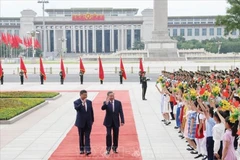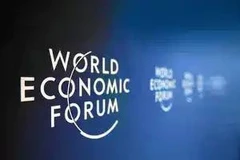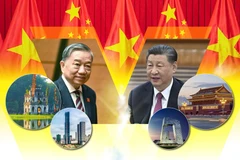Vietnamese Prime Minister Nguyen Tan Dung made this statement at theForum on Millennium Development Goals (MDGs), which took place in Seoul, the Republic of Korea , on November 11 on the sidelines of theon-going G-20 Summit.
The forum was also attendedby the UN Secretary-General, the Spanish Prime Minister, the SouthAfrican President and the Speaker of the RoK Parliament, together withover 100 RoK parliamentarians and representatives from NGOs.
PM Dung said that Vietnam has fulfilled many MGDs ahead ofschedule and will try its utmost to reach all remaining goals in 2015.“These achievements have been reached, thanks to the fact that MDGs wereintegrated into development strategies, policies and plans at alllevels and implemented through national objective programmes with theparticipation of the entire society,” he said.
The Government leader spoke highly of the international community’s support for Vietnam in implementing MDGs.
At the forum, PM Dung and other leaders also highly valued the UN’srole in accelerating discussions and exchanges on methods to solveproblems in implementing MDGs.
They emphasisedthe significance of the G-20 Summit being held for the first time in anAsian country, the RoK, which is the first country moving from being anaid recipient to a provider of development assistance, as well ascalling on G20 to continue providing assistance for developing countriesin order to help them achieve MGDs in 2015.
Thedelegates applauded the inclusion of development issues in the summit’sagenda, saying that it represented G20’s political determination torealise its commitments. They urged developed countries, NGOs, andbusiness community to support developing nations’ MDGs implementation.
The implementation of MGDs has helped hundreds ofmillions of people escape from poverty, strengthened care and investmentfor women and children, boosted the prevention of HIV/AIDS and otherinfectious diseases and mobilised international resources.
However, many countries are unlikely to reach all MGDs by thedeadline of 2015 due to the negative impacts of the financial, monetary,energy and food crises and climate change./.
























